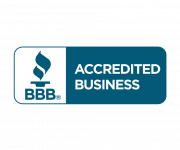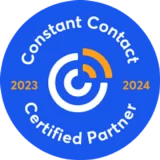Digital Marketing is an exciting field that ignites the fuel in you to learn something new every single day. Today, we discuss Search Intent Social Advertising, a form of digital marketing that allows advertisers to target consumers based on their search intent.
Search intent social advertising is a form of digital/social media advertising that uses the intent of the user to find information on social media platforms. This type of advertising is a way for brands to target their audience and increase their reach.

The main goal of search intent social advertising is to generate awareness for a brand or product. It can also be used as a way for companies to build relationships with their customers by providing them with relevant content that they are looking for.
Companies use this type of advertising to get in front of the right audience and show them what they have to offer. This type of marketing has been shown to be very successful because it provides brands with an opportunity to show off their products in a personalized way. This form of advertising is seen as one of the most cost-effective ways to boost visibility on search engines. It can also help brands generate more leads and conversions by targeting people who are already interested in their products or services.
The reason a user searches something online is known as search intent, or keyword intent. Do they wish to get knowledge? Is there a specific website they’re looking for? Trying to make a purchase? Are they looking for a new service provider?
Top search engines, such as Google, are continually improving their algorithms to better understand people’s search intent and rank pages that deliver the most relevant information. When you combine the detailed targeting of social advertising with the search intent-based data available in Google Analytics, you have a campaign structure with a lot of promise.
The Relevance of Search Intent Advertising today:
Did you know that 67.6% of all clicks come from the top five organic results on a search engine results page? Most individuals will modify their query rather than examining the second page if the first page does not include what they are looking for. Businesses may boost their chances of converting clients and making more sales by increasing website traffic.
Earlier, factors such as search volume and competitiveness decided which keywords to employ. These criteria are increasingly secondary to the intent behind the search, leading to rising search engine complexity, thanks to Artificial Intelligence. Because of advances in semantic search, search engines can now grasp intent much better than just providing results that include a certain term. Rather, they are continually learning depending on how people search, interact with search results, and evaluate them. Google currently handles over 40,000 search requests each second, which translates to a lot of information about what people are looking for.
Search engines are increasingly capable of determining the relevance of information and format. People will rapidly exit a site if it they are directed to a page they don’t find useful. This tells the search engine that the material they gave was irrelevant, and it should be ranked lower as a result. Search intent marketing and content relevance are now at the heart of SEO success, with implications for your overall digital marketing strategy.

Planning a Search Intent Social Advertising Campaign
RESEARCH SEARCH TERMS
To begin, look through your Google Analytics to see which search phrases people are using to find material on your site. You should be able to see which search phrases are sending visitors to your website, as well as what they are looking for on your site. When it comes to social advertising targeting and message, this data may be really useful.
You can either use External or Internal Search Queries. Keywords or search queries that have led consumers to your website are known as External Search Queries. If people are searching for these phrases to find your material, they are definitely interested in it or want to do something with it once they find it. This is useful information to have when deciding on social ad targeting and writing ad copy. This data may be found by going to Google Analytics and selecting Search Queries from the AdWords section in Acquisition. Internal Search Queries are phrases that users use to find their way around your website once they’ve arrived. This is useful information for you since it explains what people are looking for in greater depth. External Search Queries, on the other hand, tell you how visitors found your website, but Internal Search Queries tell you exactly what they’re seeking for within your site’s content. In Google Analytics, go to the Queries area under Search Console in the Acquisition section to see this information.
OPTIMIZE FOR SEARCH INTENT TAKING CUES FROM TOP-RANKING PAGES
A SERP analysis should always be included in search intent research for content optimization. To begin, see what sorts of pages are dominating the SERP for your query — blog articles, product pages, or landing pages, for example. Pay attention to the type of media on the page as well. Taking cues from top-performing pages is one of the best ways to understand how you must curate your content. You must analyze what is trending and present the same on your webpage as well. Also, pay close attention to featured snippets and people also ask section that show up when you Google your targeted keywords, as they present some of the most useful information regarding specific types of queries.
IMPROVE AND OPTIMIZE EXISTING CONTENT FOR A WHOLESOME USER EXPERIENCE
Re-optimizing current content on your site is one of the most effective techniques to increase organic traffic. An in-depth SEO audit will reveal material that already fits user intent as well as areas for improvement. Reducing pop-ups (we ALL hate them, don’t we?), using fonts that please the eyes, adding images and videos where applicable, using headings and subheadings, and making your webpage mobile-friendly are some of the ways you can optimize your content for an optimal user experience.
Social Know How can help you optimize your social media advertising strategy with finesse. Schedule a call with us to know more!
PS: Your company could benefit immensely from a free social media assessment by a leading social media agency in Toronto. Contact us today!





